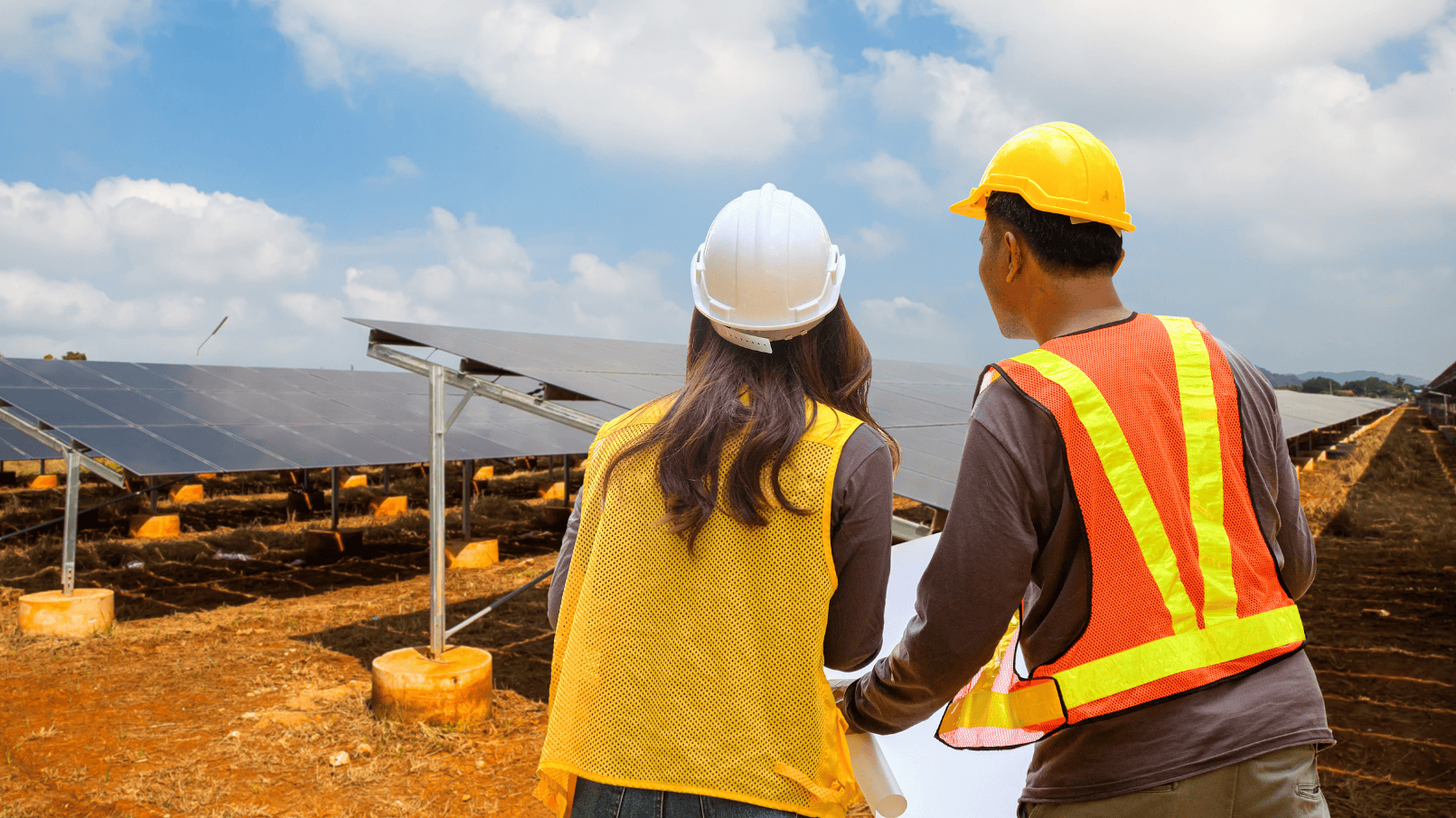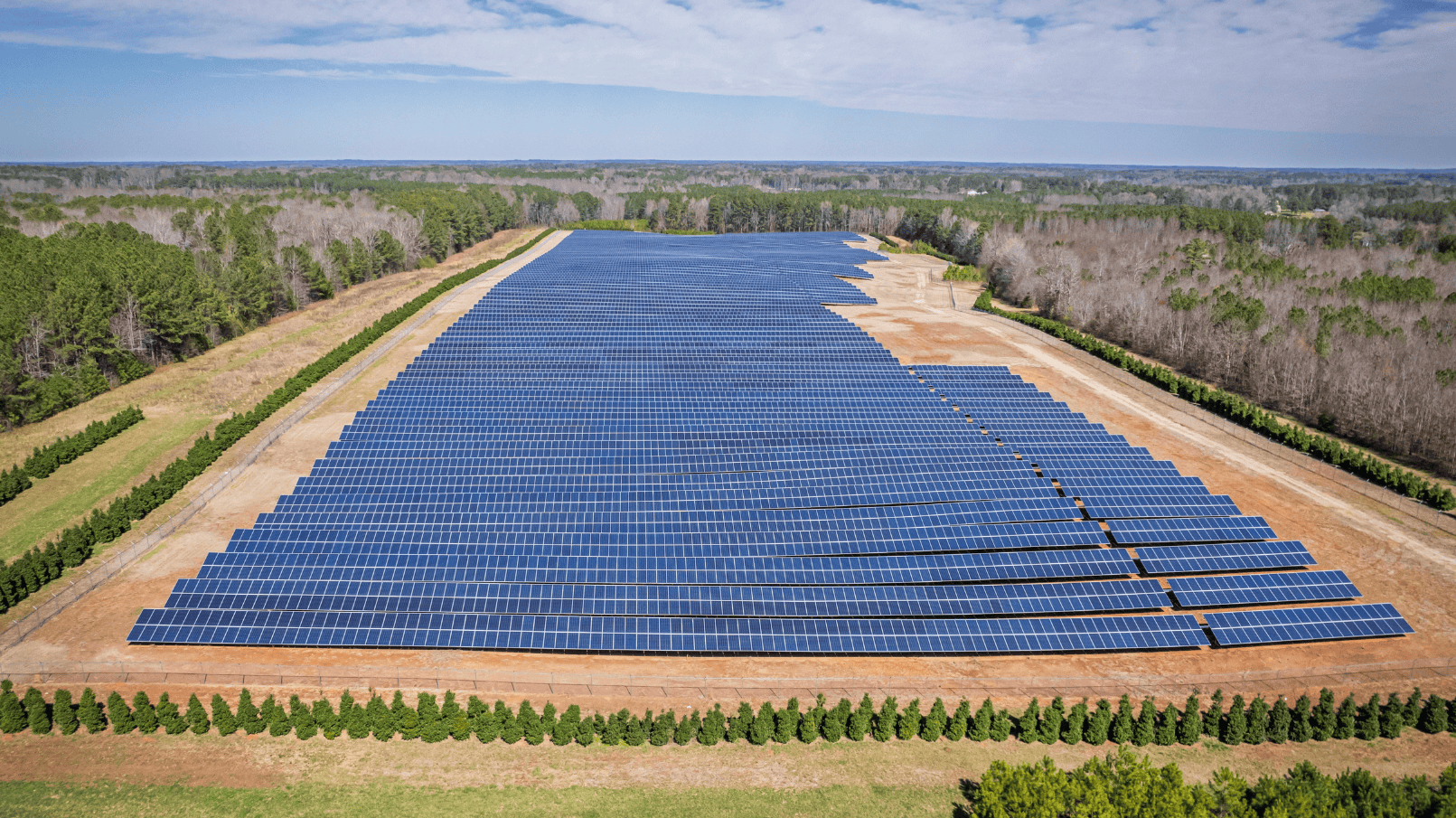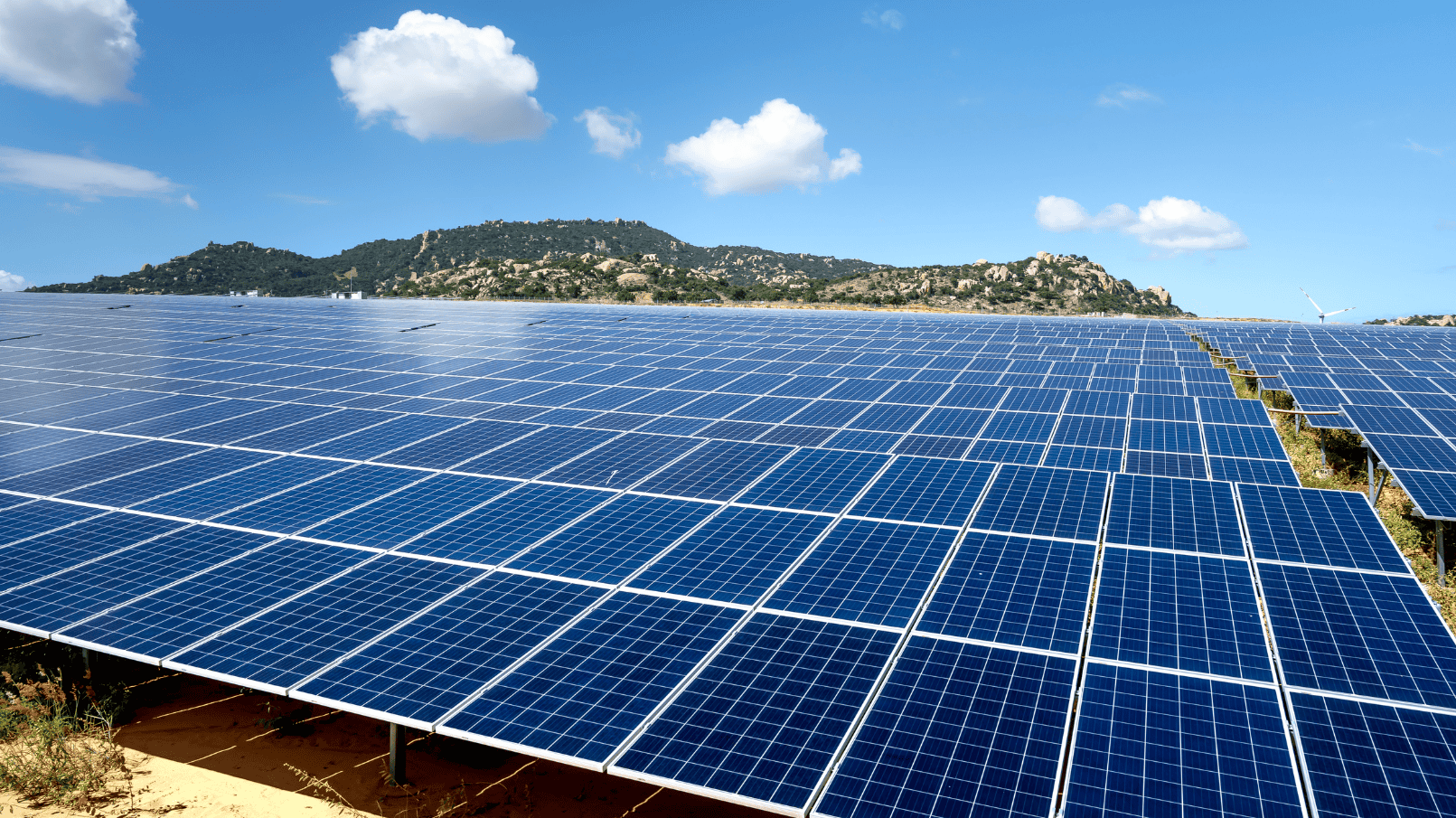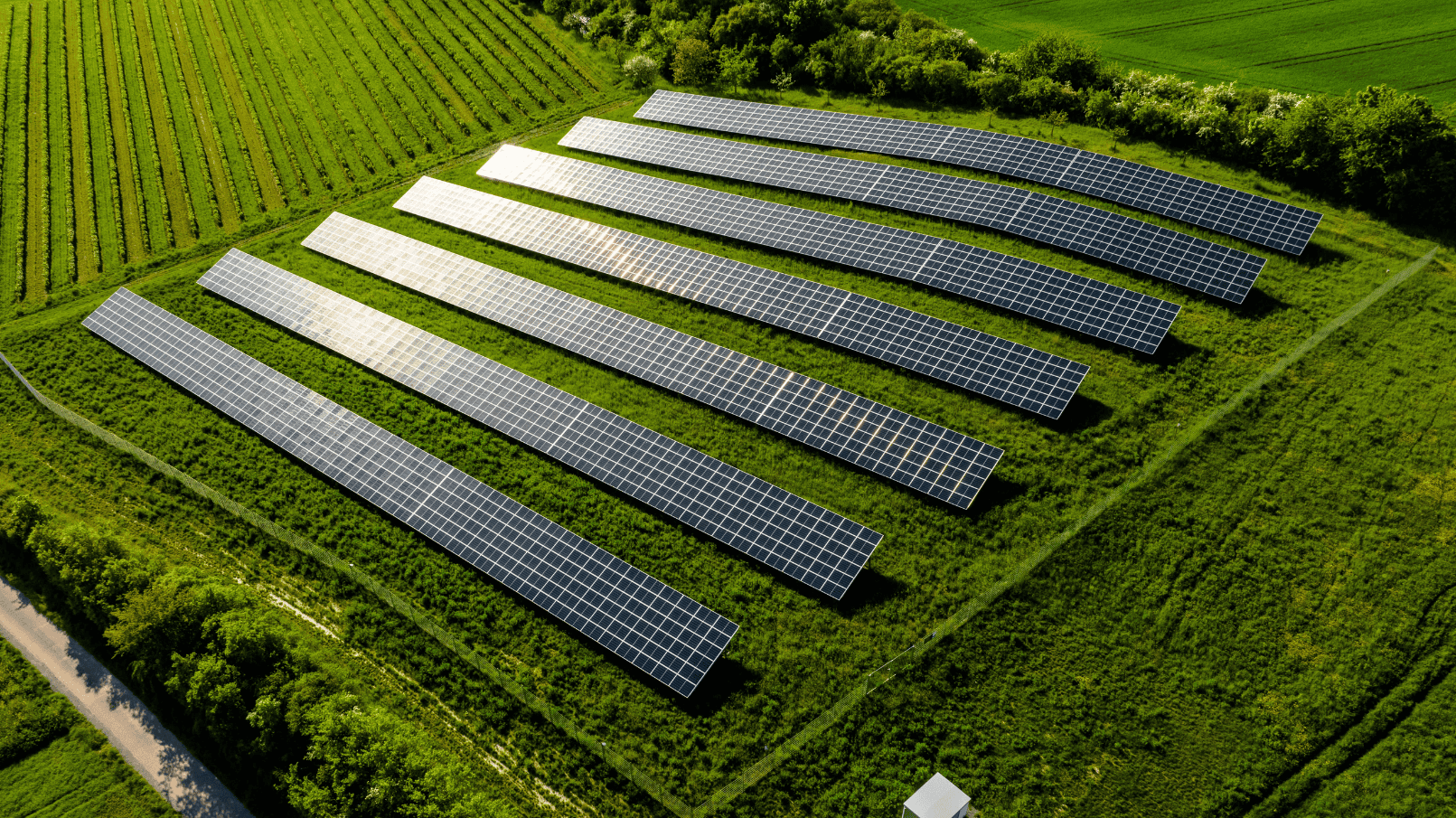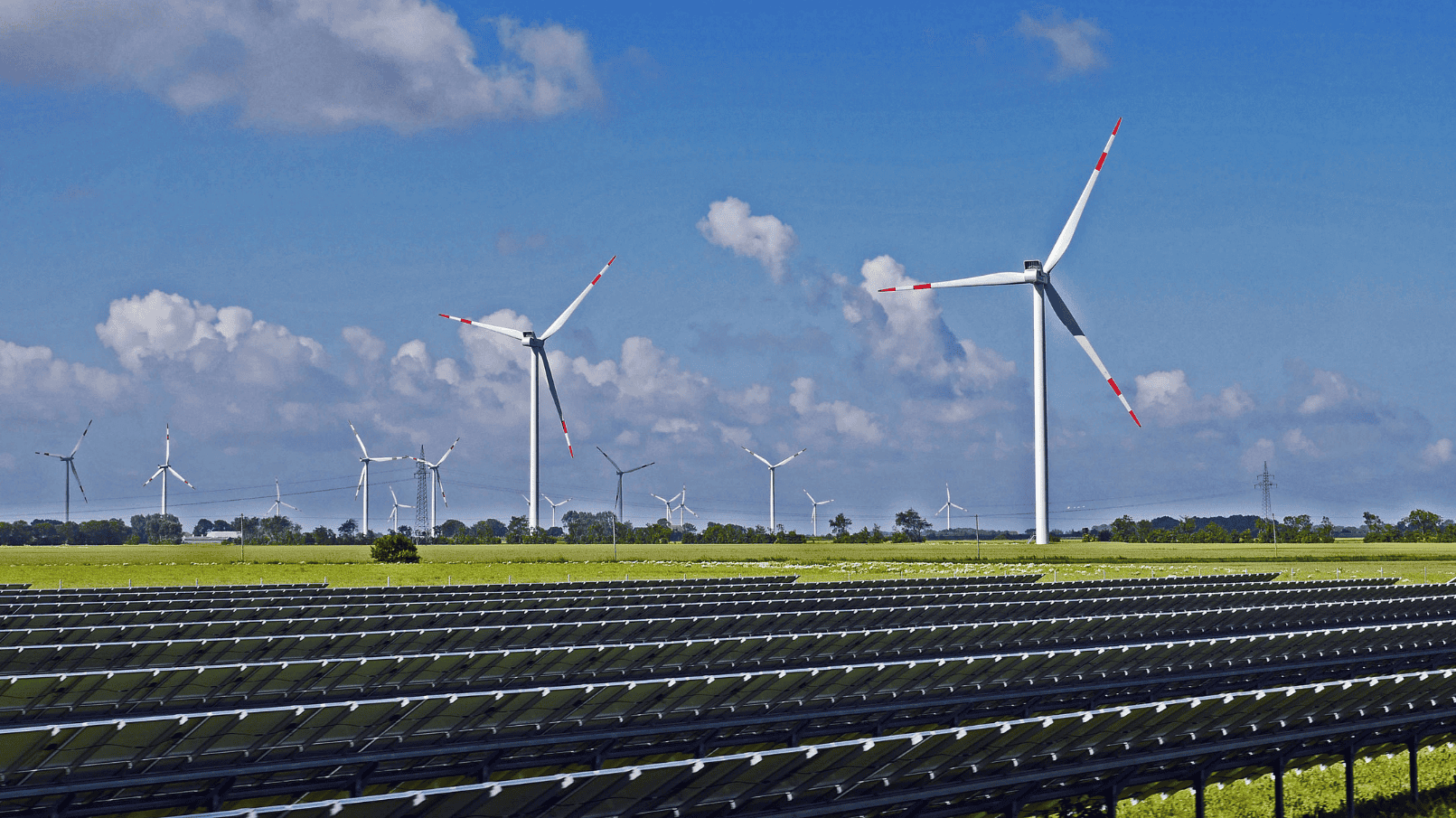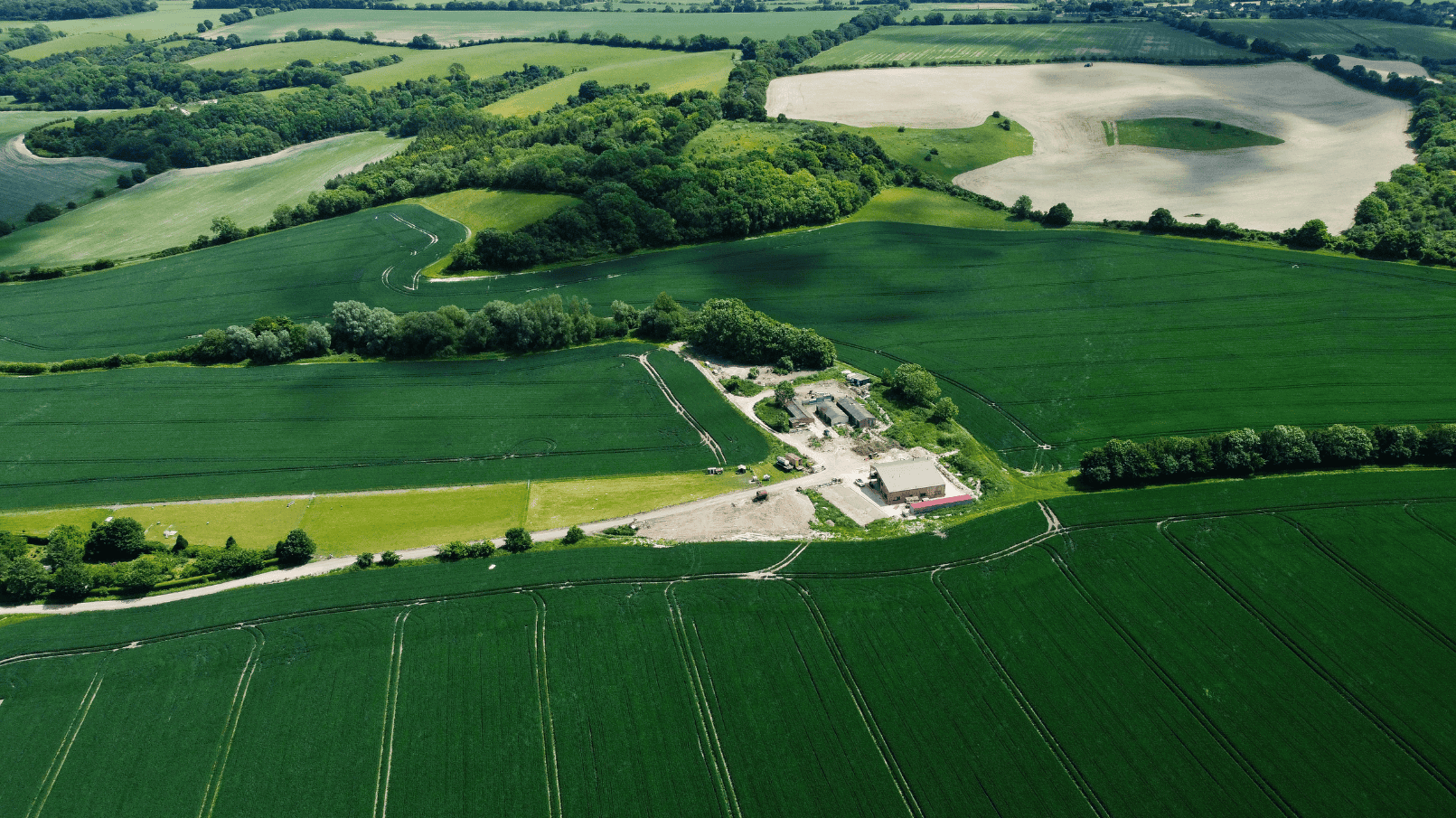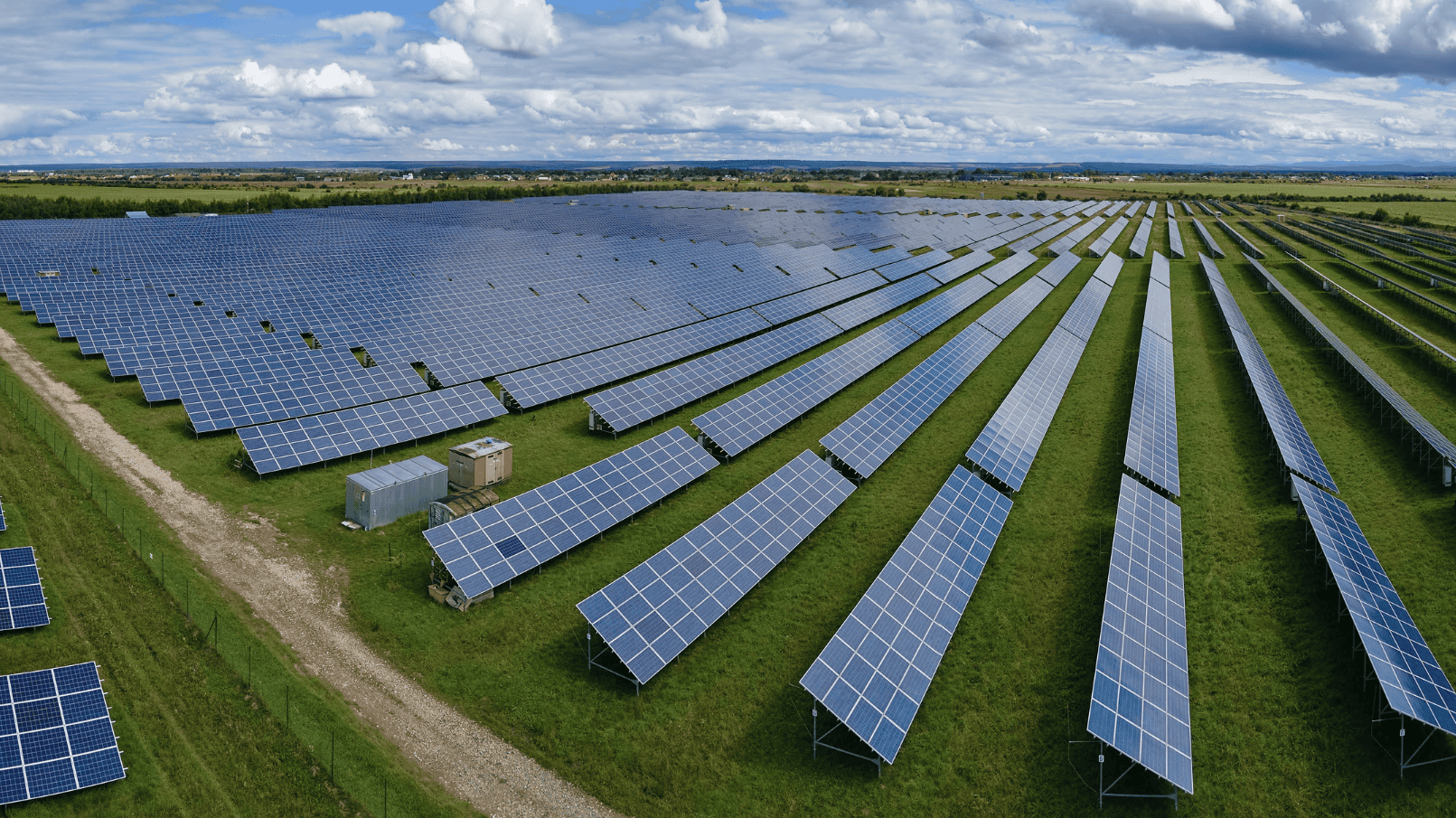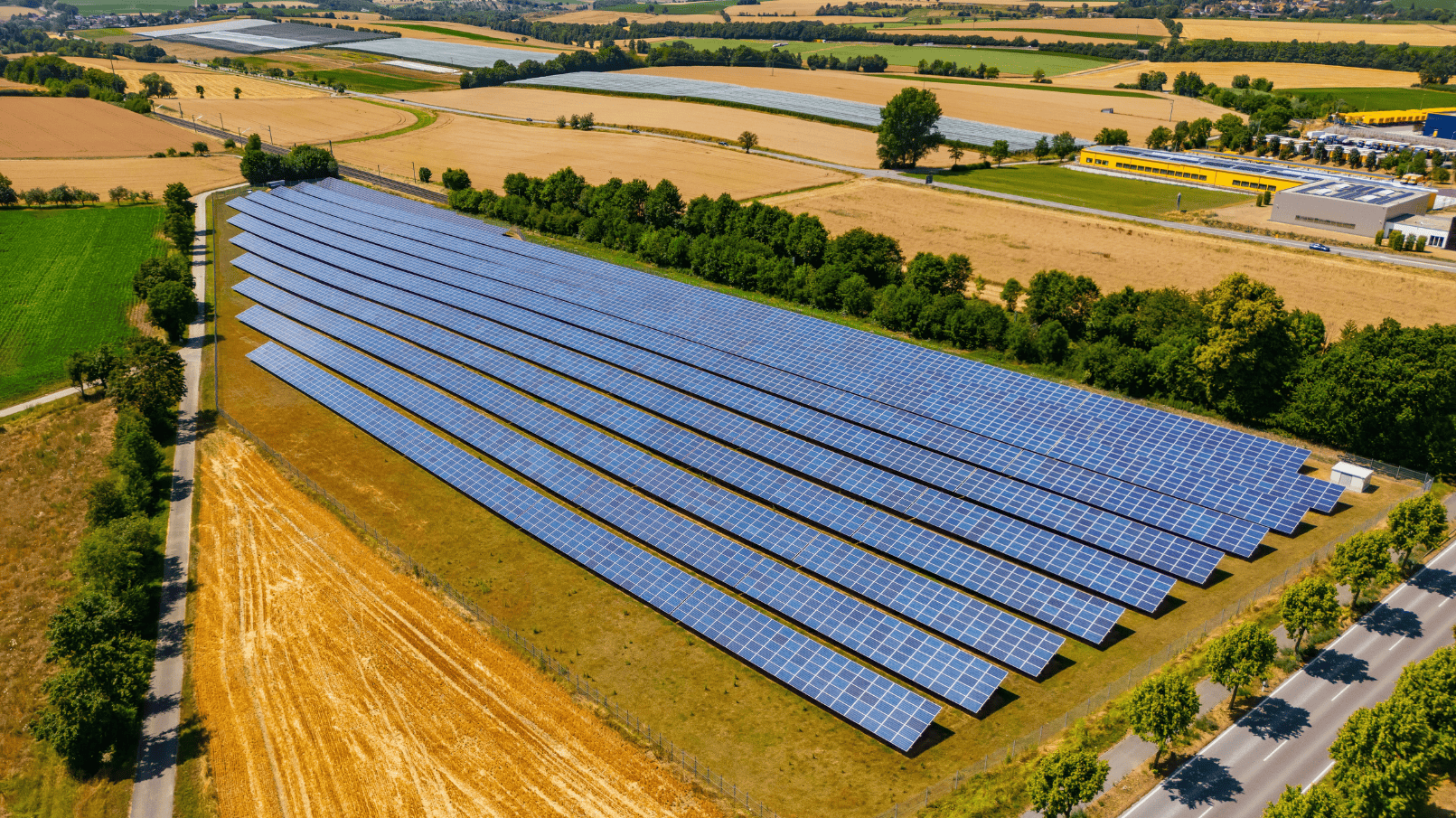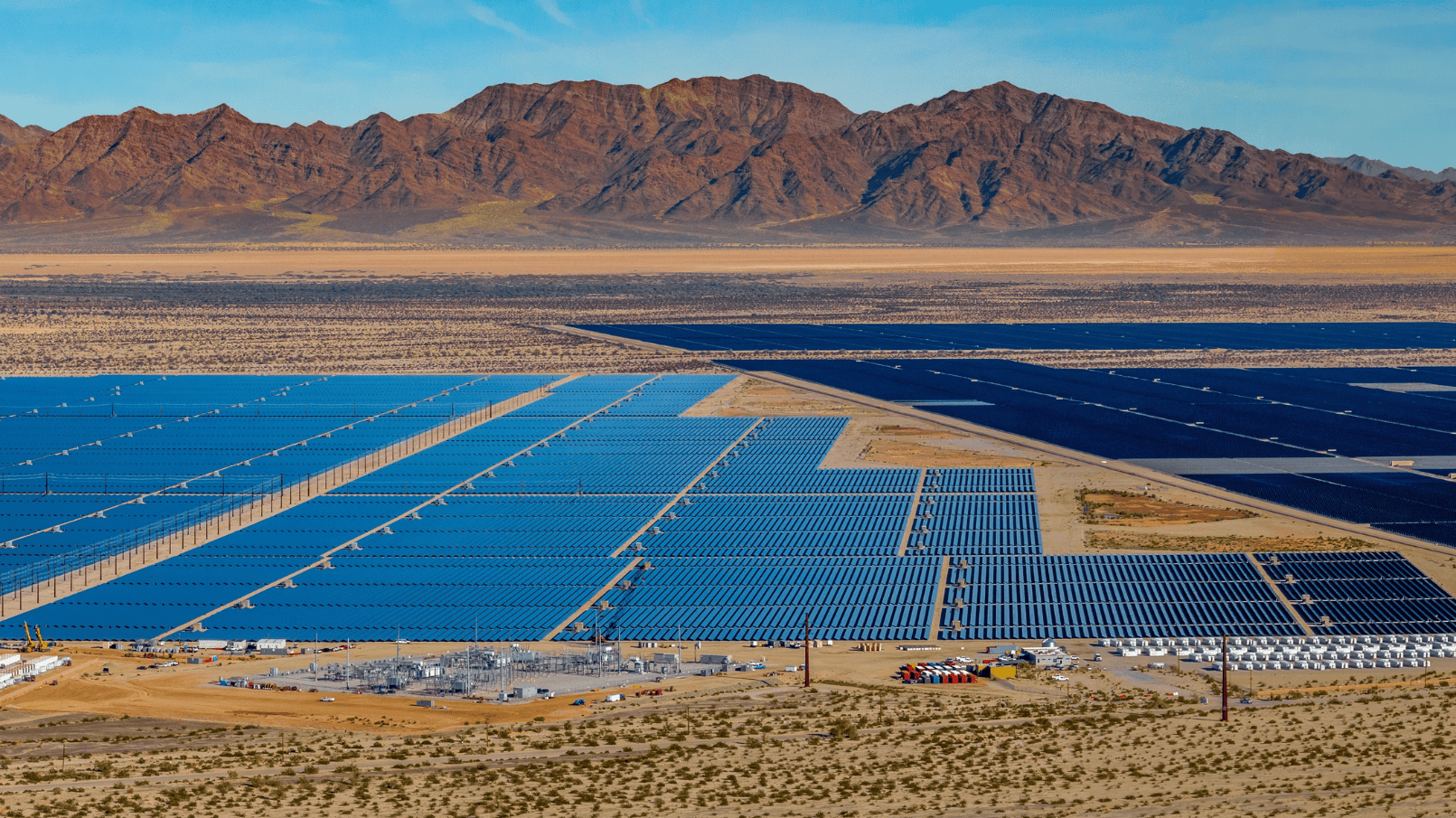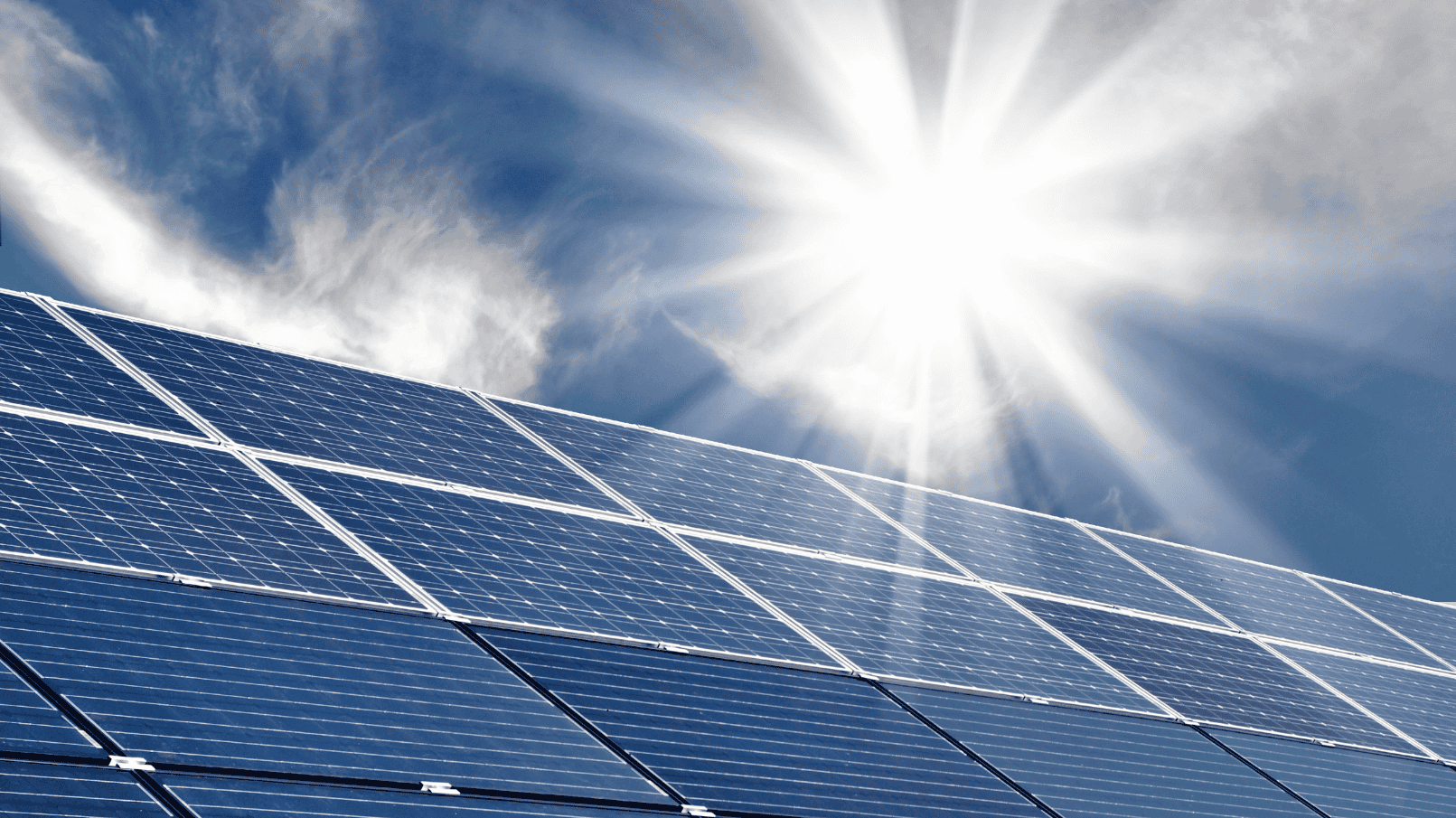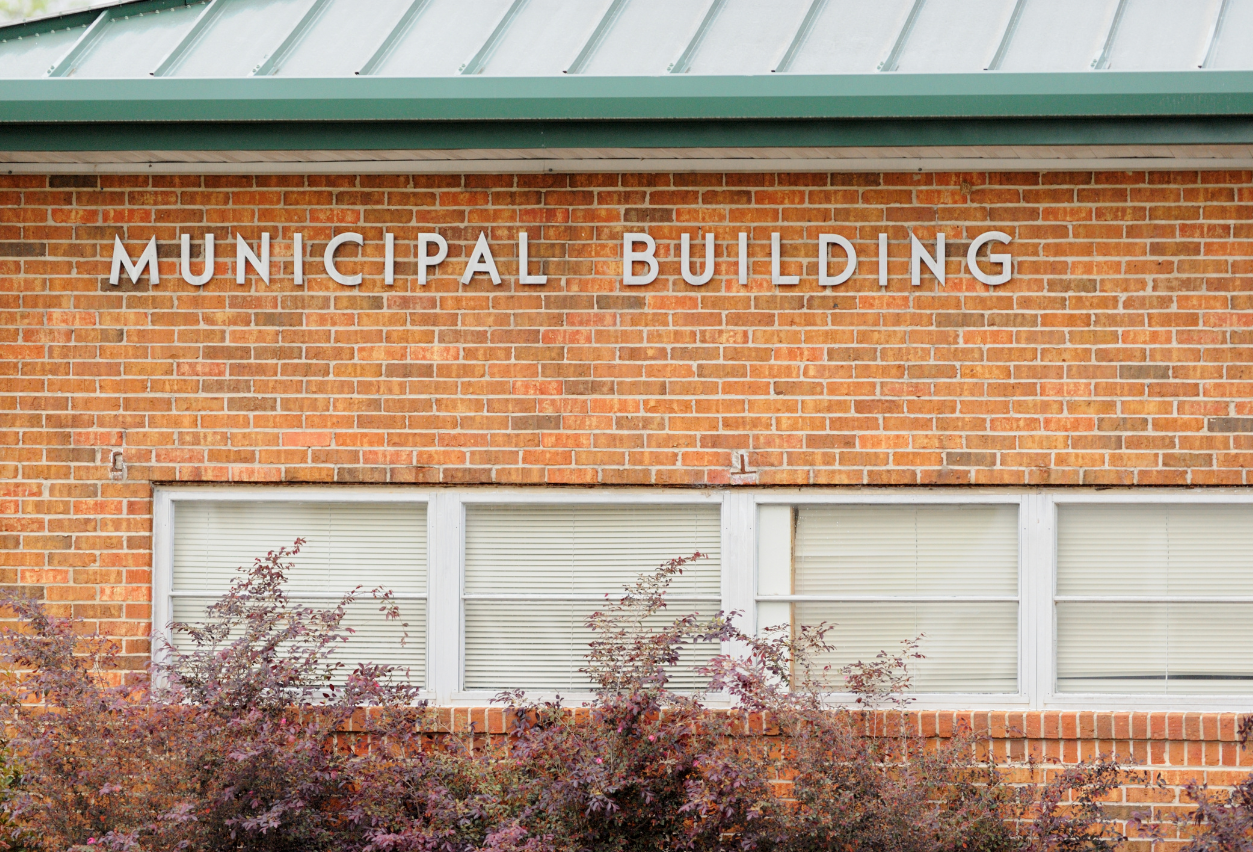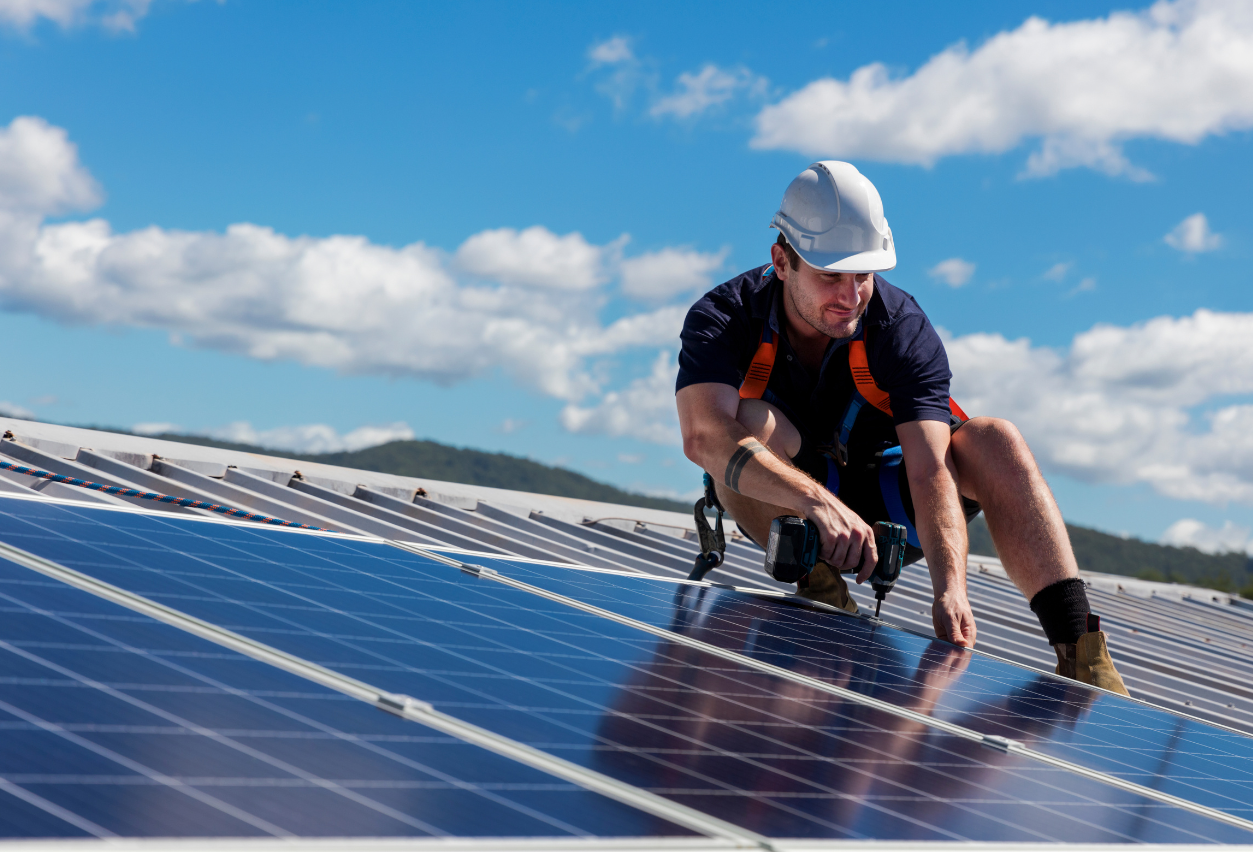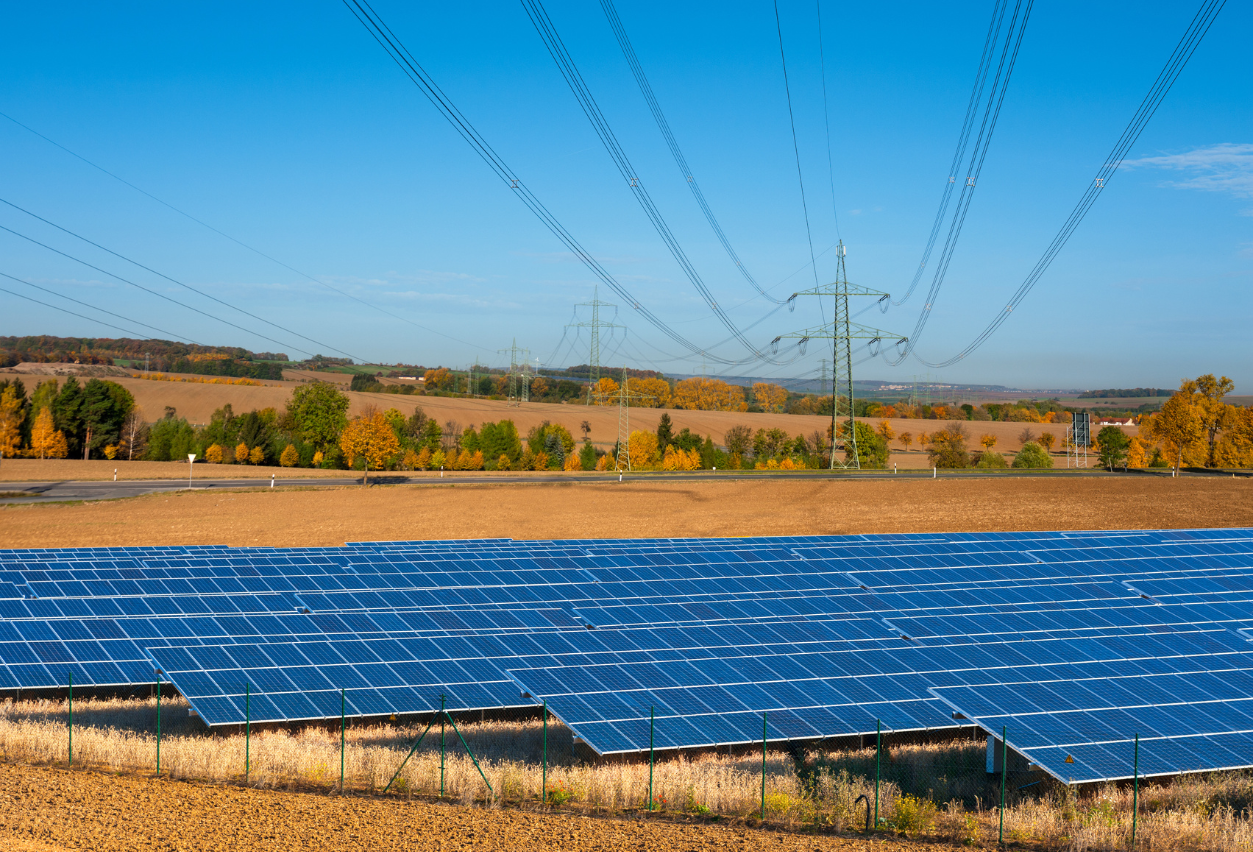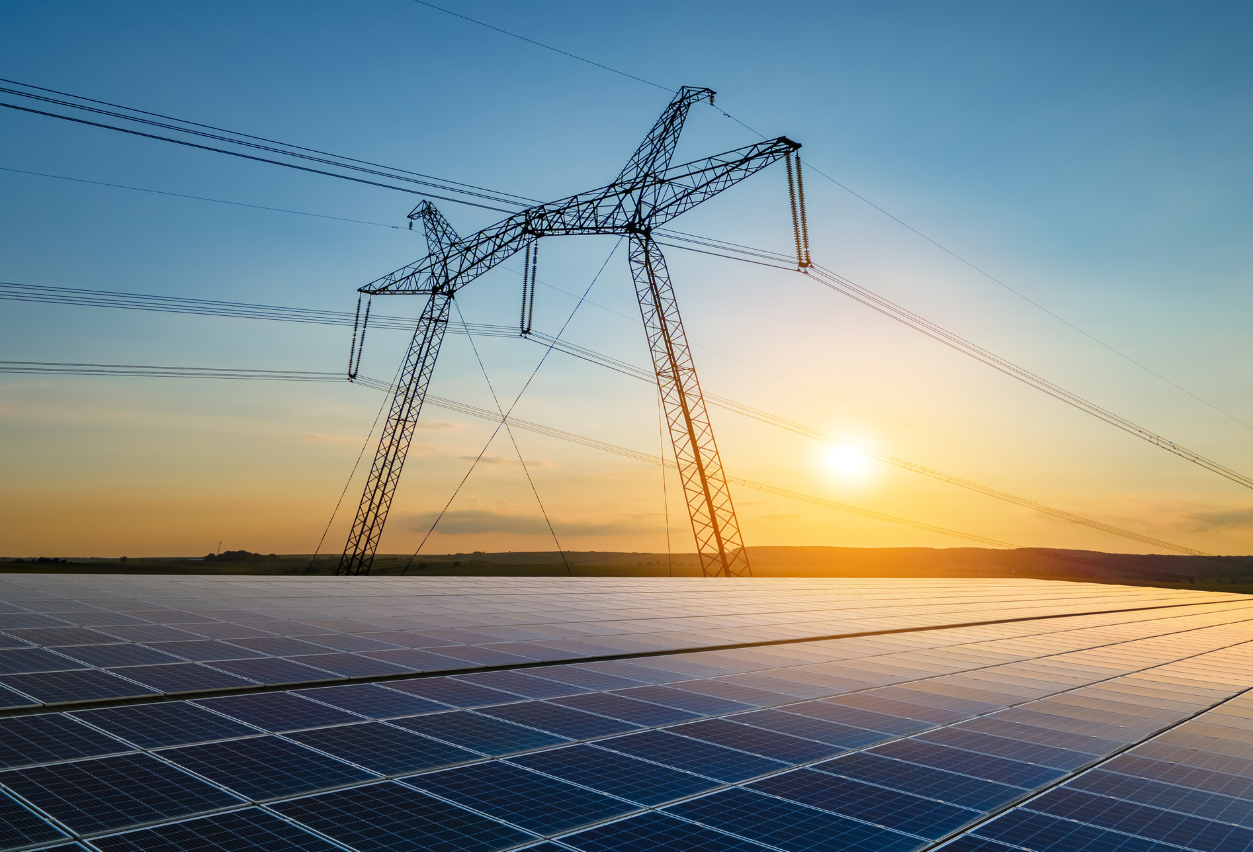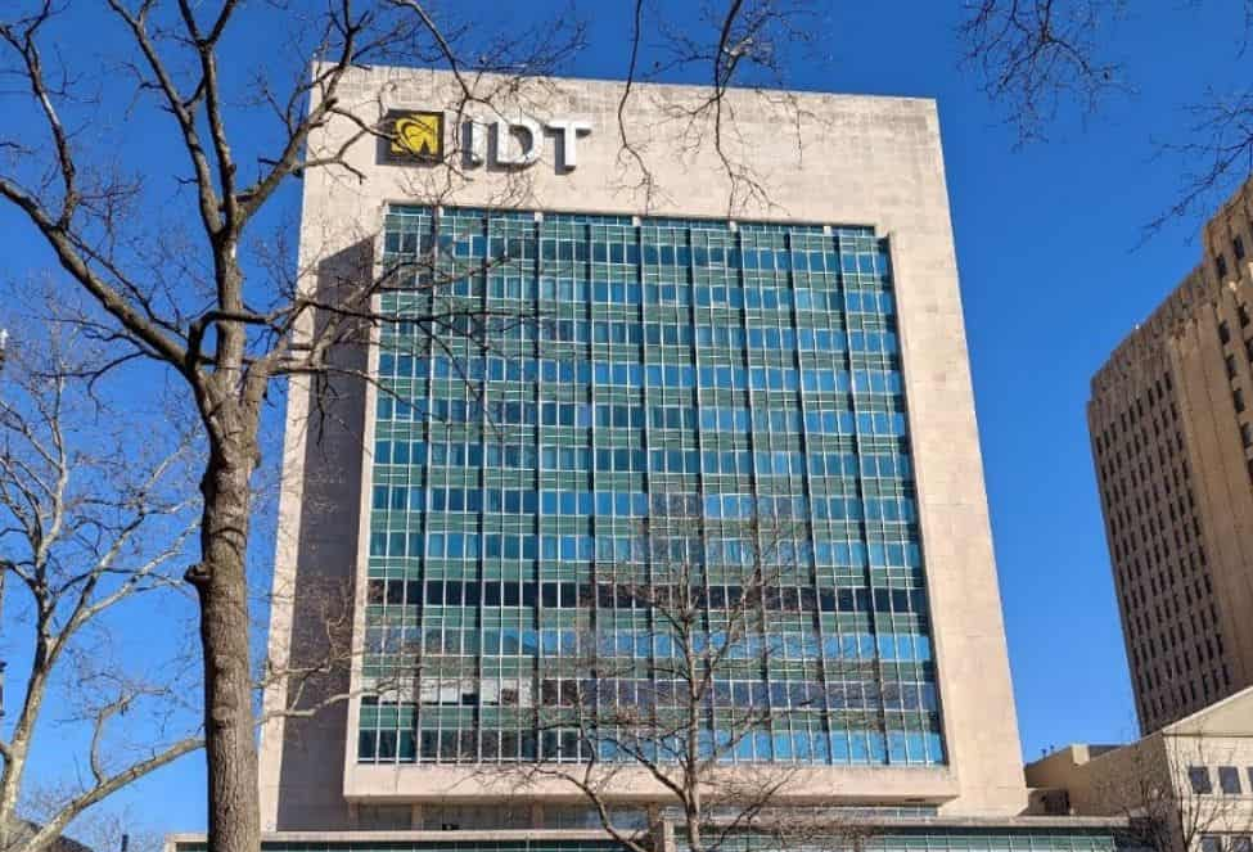As solar energy generation continues to grow in the United States, there are different ways of deploying the energy emerging in the market. Two of the most prominent forms of structuring large solar projects are community solar and utility-scale solar. In this article, we aim to clearly define these models, highlight their differences, and help landowners and solar developers make informed decisions about investing in renewable energy.
The Types of Solar Development
Increasing demand for solar energy is driving investment into large-scale solar development and land leasing for solar projects. Two dominating frameworks are community solar and utility-scale solar, each playing distinct roles in the market. Let’s define each of these models in more detail below.
Community Solar
Community solar, also known as shared solar, is a structure where multiple households or businesses in a particular area purchase electricity from a localized solar farm. These systems, typically 1-10 MW, are connected to the local distribution grid and deliver energy across regional utility infrastructure. In some states with integrated utility billing, consumers pay their local utility companies for electricity but often receive a credit on their bills for participating in the program. In other states, the community solar company issues the entire utility bill, often passing on discounts to participants. Community solar projects allow end users to participate in solar without having to install rooftop panels or maintain behind-the-meter systems.
Utility-Scale Solar
Utility-scale solar systems, on the other hand, are larger installations that are typically greater than 10 MW in capacity. Unlike community solar models which sell electricity directly to ratepayers, utility-scale models are connected to the electricity grid selling power at a wholesale level to Regional Transmission Organizations (RTOs) or Independent System Operators (ISOs) in the real-time or day-ahead markets. Some of these systems can also integrate into the retail markets by offloading power directly to local distribution companies, or utilities, via a power purchase agreement (PPA). Landowners that are interested in participating in utility-scale projects should have a minimum of 60 flat acres located near grid infrastructure.
The Differences Between Community & Utility-Scale Solar
Some of the key differentiating factors between community and large-scale solar include:
| Attributes | Community Solar | Utility-Scale Solar |
| System Size | 1-10 MW | 10 MW+ |
| Interconnection | Local Distribution Company | RTO or ISO |
| Offtakers | End user consumers | Wholesale markets or utilities via PPA |
| Land Requirements | 6-60 acres | 60+ acres |
| Regulatory | PUC | FERC, ISO, RTO |
| Revenue Model | Retail | Wholesale & Retail |
Challenges With Each Solar Model
While constructing a community solar farm or utility-grade solar project can have lots of upside for developers and ratepayers alike, each model comes with an array of hurdles that must be overcome to bring these projects to fruition.
Community Solar
Some of the challenges associated with building community solar projects include interconnection delays at the utility level, zoning and permitting issues with local municipalities, subscriber acquisition, and coordination with multiple stakeholders including investors, landowners, and solar developers. Successful community solar projects are typically located in states with favorable community solar legislation and in utilities that allow for consolidated billing.
Utility-Scale Solar
Utility-grade projects, on the other hand, have a different set of issues. While permitting and zoning still play a role at the local level, transmission interconnection complexities are more challenging at the wholesale market level. These projects must seek approval from the RTO or ISO, and some projects are not possible due to congestion at the interconnection point. Furthermore, because these projects are much larger in size, there are longer construction timelines and higher capital costs, which could threaten the project.
The Role Of Investors And Landowners
For landowners and investors looking to participate in community solar or utility-level projects, there is a lot to consider. Landowners should evaluate the amount of open space they are willing to lease. While participating in a utility-grade project can generate larger lease payments, these projects require much more land. Investors also need to consider capital risk and potential return on capital.
Community solar projects require less investment, and while they are difficult to deploy, can offer higher payouts based on retail electricity rates charged to end users. There is a risk, however, related to customer churn and the constant need to balance the customer portfolio.
Utility-scale projects typically generate lower unit revenue due to wholesale market pricing but can offer more stability for investors as the revenue is guaranteed by the RTO or ISO.
Interested In Developing Or Investing In A Large Solar Project?
Whether you are a landowner looking to generate additional income by leasing your land to a solar project, an investor looking to participate in the renewable energy markets, or a speculative developer, large-scale solar projects can be very rewarding. It is important, however, to partner with an experienced solar company that can bring the project to fruition. At Genie Solar Energy, our team of solar experts has many years of experience navigating the complexities of community solar and utility-scale solar development. Contact us today to learn more about these opportunities.
